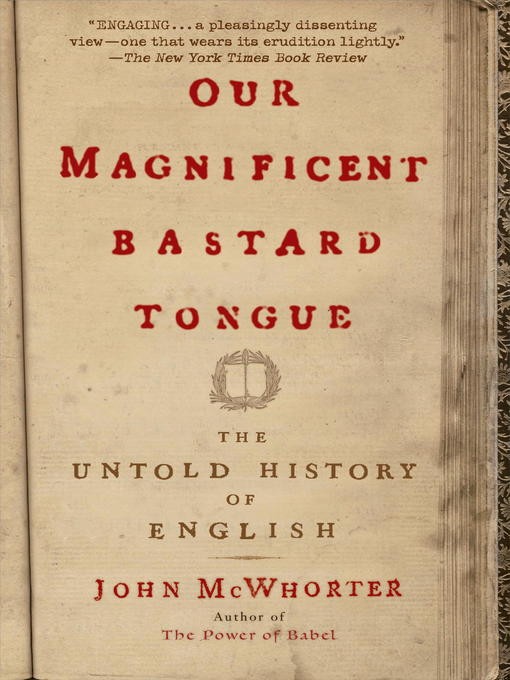
Our Magnificent Bastard Tongue
The Untold History of English
کتاب های مرتبط
- اطلاعات
- نقد و بررسی
- دیدگاه کاربران
نقد و بررسی

November 3, 2008
This evolutionary history of the English language from author and editor McWhorter (The Power of Babel: A Natural History of Language) isn't an easy read, but those fascinated by words and grammar will find it informative, provocative and even invigorating. McWhorter's history takes on some old mysteries and widely-believed theories, mounting a solid argument for the Celtic influence on English language that literary research has for years dismissed; he also patiently explains such drastic changes as the shift from Old English to Middle English (the differences between written and spoken language explain a lot). Those who have learned English as a second language will recognize McWhorter's assertion that "English really is easy(-ish) at first and hard later"; for that, he says, we can "blame... the Danish and Scandinavian" influence. McWhorter further proves his bona fides with deft analogies, like a comparison between the evolution of English and popping a wheelie on a bicycle; he also debunks, handily, the popular notion that "a language's grammar and the way its words pattern reflect aspects of its speakers' culture and the way they think." McWhorter's iconoclastic impulses and refreshing enthusiasm makes this worth a look for anyone with a love for the language.

November 15, 2008
Grammar, not vocabulary, makes the English language intriguing, according to McWhorter (linguistics, Univ. of California, Berkeley; "The Power of Babel: A Natural History of Language"). He tackles the specific challenge of explaining to general readers why English grammar diverged and became simplified compared with its Germanic-language siblings. McWhorter's answer lies with speakers of Welsh and Old Norse (the Vikings). He begins by crediting Welsh for our verb conventions, especially adding the verb "do" to statements such as, "Do you like cheese?" and "I do not like cheese." McWhorter fingers invading Vikings for shearing off the grammatical markings added to nouns, adjectives, and verbs. Finally, he considers the common features of Germanic and Semitic languages. Throughout, McWhorter contrasts English with other languages and exposes deep controversy among scholars. In the middle of the book, he strays from English-language development, discussing intriguing questions about grammar in general. Citations to a variety of scholarly sources along with more general ones support McWhorter's arguments. This distinctive work is recommended for public libraries with large language collections.Marianne Orme, Des Plaines P.L., IL
Copyright 2008 Library Journal, LLC Used with permission.

























دیدگاه کاربران